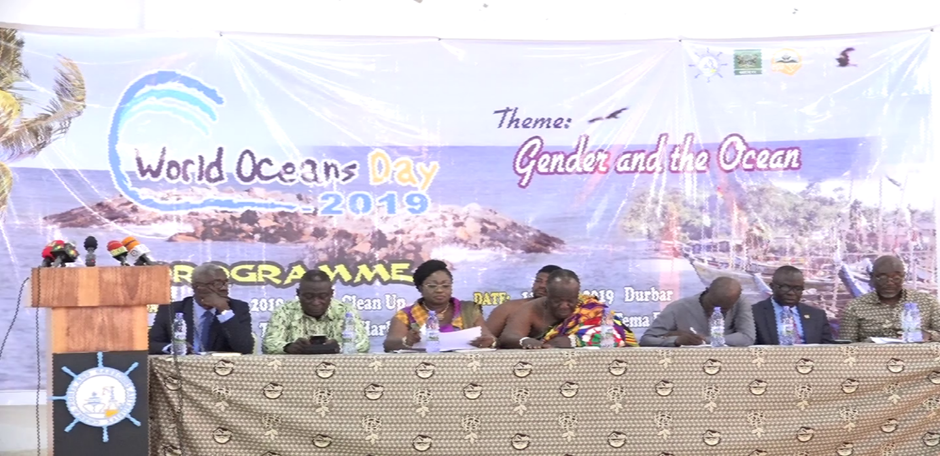Players in the Ghanaian environment, maritime and fishing space have assembled to mark this year’s World Oceans Day under the global theme, “Gender and the Oceans”, in Tema.
The day is marked globally to create awareness to protect and restore the world’s ocean that connects the earth by taking action locally and on a global scale inspiring change in the management of the world’s oceans.
It is intended to provide an opportunity for people to reflect on the benefits that oceans provide, and emphasize on individual and collective duty to sustainably manage the oceans, by meeting current needs without compromising those of future generations.
George Bredu, General Manager, Special Duties & Technical Assistant to the Director General of the Ghana Ports and Harbours Authority, the organisation that hosted the event said, in view of the fact that the port is the interface between the ocean and land, makes GPHA much concerned about issues of ocean management.
“This occasion marks the higher privileges of the resources of the ocean and at the same time, higher responsibilities towards protecting the marine environment, as against countries which are not directly enjoined to the oceans,” he stated.
Patricia Appiagyei, Deputy Minister of Environment, Science, Technology and Innovation pointed out the country’s dependence on the fish stock it generates yearly among other significant uses of the ocean, and charged the public to desist in unhealthy practices along and within our oceans which would bring degrade the ocean’s resources.
“It is however pathetic that we do not enjoy the full benefits of our beautiful beaches, instead we desecrate them by defecating on them openly and it is high time we desist from such activities,” she remarked.
Deputy Minister of Fisheries, and Aquaculture development, Francis Kingsley Ato Cudjoe highlighted the role women play in fish-based decisions at the community level, but lamented the inadequate representation of women at the governmental level.
“In Ghana women play very key roles in decision making in the coastal areas, especially in the fish-based livelihoods. But unfortunately, at the national level, we involve very little of women in making decisions,” he commented.
Chairman of the Parliamentary Select Committee on Environment, Addo Frimpong, emphasized that the depletion of fishes in our ocean space is due to the negligence of Ghanaians who engage in degradable activities such as dumping of plastics in the oceans.
“These environmental problems of the oceans are not natural, but man-made. So, we have to walk the talk of changing our attitudes towards our oceans,” the Parliamentarian added.
Ebenezer Appah-Sarpong, Deputy Executive Director of the Environmental Protection Agency, urged stakeholders to practically demonstrate their willingness to sustainably harness the potential of the oceans.
“Everybody is playing a different role, but we all work towards one aim. As the EPA, we will work on regulations, parliament would pass the laws and support us with the resources to do that, the Ministers would come up with the policies and the necessary framework to operate, and others would support with the research to aid our work.”
Nii Adjei Kraku II, the Tema Mantse, appealed to the fishing community to be devoted to an attitudinal change in approach towards the ocean, as it is their major source of livelihood.
